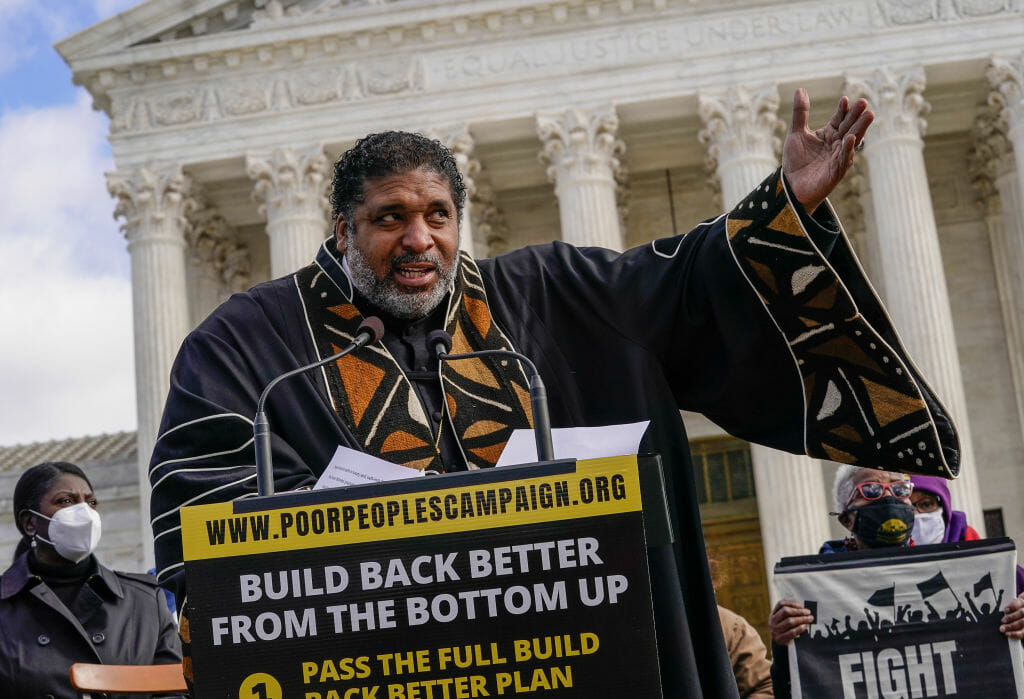We are once again in a moment of extreme division, with rising assaults on democracy and levels of racism, sexism, and inequality that are tearing our country apart. There is no scarcity of solutions, but there is a scarcity of political will to do the right thing.
This may be about to change.
With Congress failing to extend vital safety net programs created during the pandemic, poor and low-income people will be voting for their lives in this year’s midterms.
Despite all the challenges of the pandemic and other barriers to voter participation, 58 million poor and low-income Americans turned out for the 2020 election. They did not vote for a return to “normal.”
For everyone to thrive, we must do much more to tackle the interlocking injustices that long pre-date the COVID-19 crisis—the injustices of systemic racism, poverty, ecological devastation, and militarism.
Two years after that election, we can point to some hopeful signs that the bold social and economic transformation we need is indeed possible.
Just-released Census statistics show a decline in the share of Americans who were living in poverty in 2021. Most striking: a drop in the child poverty rate from 9.7 percent in 2020 to 5.2 percent last year. The number of Americans who are either poor or low-income dropped from about 140 million before the pandemic to 112 million in 2021.
This was not just some fluke. In the face of the pandemic crisis, poor and low-income people have effectively mobilized for policy change.
